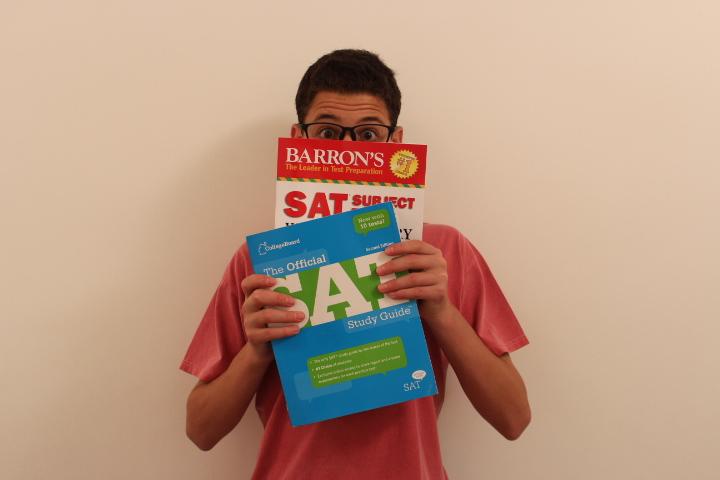I never took the SAT
I never took the SAT. I’m not implying you should do the same if you still haven’t taken it, but ever since the first vocabulary question I encountered in a prep book, I realized that it wasn’t the right test for me. Since I had to demonstrate to colleges my “academic abilities” that weren’t somehow reflected in my classes, grades, and essays, I settled for the ACT instead (and the fact that they didn’t deduct points for wrong answers made me less nervous). But forget the ACT. The latest news is about changes to the SAT for 2016, announced by the College Board last week.
Back to basics
By making the essay section optional (just like the ACT), the new version will eliminate its 2400 scale, which was established in 2005, and go back to the old 1600 scale. The non-mandatory essay will be based on a passage; students will analyze the ways its author used evidence, logic, and stylistic elements in the argument. It will be scored separately, based on a rubric.
No need to memorize archaic words you will never use
The College Board finally addressed the unfairness of making high school juniors and seniors stay up all night memorizing words like perfunctory and blandish. Such words still make you sound more knowledgeable (if used correctly), but it’s a relief to know students won’t be tested on them anymore. Instead, vocabulary words will be less obscure and more widely used.
Don’t be afraid to try
In my opinion, the greatest benefit of the new SAT version is its elimination of the 0.25 penalty for wrong answers. All my life, I believed that we should always try even if we fail, which was my main source of difficulty in adapting to the SAT. What do you mean I can’t guess? Now students will be free to try and make mistakes, and not be punished for that.
Give me back my calculator
Not all changes are beneficial to students. Calculator use will only be allowed in certain parts of the math sections, which definitely makes it more difficult to fly through the easy questions like in the current exam. At least this will be good practice for IB Math Paper 1, which is entirely non-calculator.
Passages from founding documents
Here is where things get strange. The SAT is a test administered in more than 175 countries, and one of its changes is not a sign of progress for international students. The new reading section will include passages from “founding documents of America,” such as the Declaration of Independence and the Federalist Papers. As an international student whose knowledge of American history doesn’t go beyond the well-known excerpt, “life, liberty, and the pursuit of happiness,” I don’t find this by any means fair.
Welcome to the 21st century
The exam will be available in both paper and digital forms starting in 2016. Being a firm believer in ink and paper, I’m glad they made the digital form optional instead of eliminating the good old paper version. Nonetheless, there are clear advantages to having the test online. The SAT is taken all around the world and the new version speeds up the process of grading the tests and releasing the scores. It is hoped that it will make the test cheaper as well.
Shorter exam
Congratulations, future test takers, you just won 45 minutes of a Saturday morning. The exam, previously 3 hours and 45 minutes long, is now only 3 hours long with an optional 50-minute essay section. I just wish the test would start 45 minutes later as well.
Free online test prep is finally here
The bright side of these new changes is a new agreement between the College Board and Khan Academy, promising free online test prep for students. This tries to put an end to the previous complaint that the SAT favored kids who could afford an expensive prep course, although the new Khan Academy classes would still be restricted to those who have access to the Internet. Even so, it’s a fine improvement.
Now, if this new version of the test had been available when I was taking standardized tests, would I have taken it? Though the SAT may still not be my favorite admissions test—not that I’m particularly fond of the ACT either—I’d like to give this new format a try.













Blair Peterson • Mar 15, 2014 at 4:59 pm
Luiza, thanks for sharing. Based on the latest figures you are not alone when it comes to students opting for the ACT as opposed to the SAT. In 2012, more students took the ACT than the SAT. Let’s also see if the new version becomes a better predictor or success in college.
“The authors of the Nacac report cited a University of California study, which characterized the SAT as a “relatively poor predictor of student performance” and questioned the tendency of colleges to rely on the SAT as “one of the most important admission tools.” (Many of the schools that dropped test requirements saw spikes in their applications, at least in the first year.)”
From the NY Times article, The Story Behind the SAT Overhaul
By TODD BALFMARCH 6, 2014
http://www.nytimes.com/2014/03/09/magazine/the-story-behind-the-sat-overhaul.html